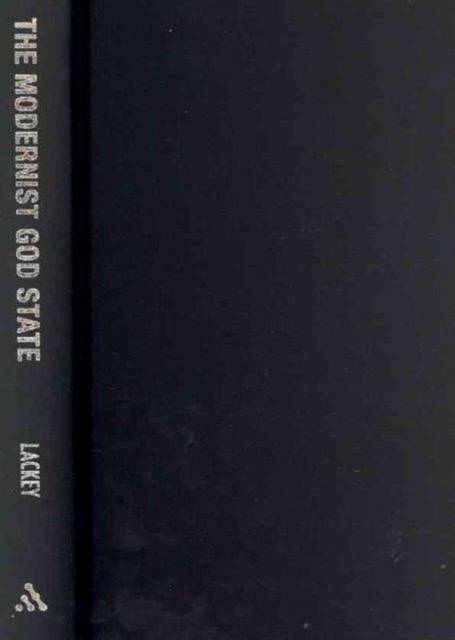
- Retrait gratuit dans votre magasin Club
- 7.000.000 titres dans notre catalogue
- Payer en toute sécurité
- Toujours un magasin près de chez vous
- Retrait gratuit dans votre magasin Club
- 7.000.000 titres dans notre catalogue
- Payer en toute sécurité
- Toujours un magasin près de chez vous
The Modernist God State
A Literary Study of the Nazis' Christian Reich
Michael Lackey
Livre relié | Anglais
322,45 €
+ 644 points
Format
Description
The Modernist God State seeks to overturn the traditional secularization approach to intellectual and political history and to replace it with a fuller understanding of the religious basis of modernist political movements. Lackey demonstrates that Christianity, instead of fading after the Enlightenment, actually increased its power by becoming embedded within the concept of what was considered the legitimate nation state, thus determining the political agendas of prominent political leaders from King Leopold II to Hitler.
Lackey first argues that novelists can represent intellectual and political history in a way that no other intellectual can. Specifically, they can picture a subconscious ideology, which often conflicts with consciously held systems of belief, short-circuiting straight into political action, an idea articulated by E.M. Forster. Second, in contrast to many literary scholars who discuss Hitler and the Nazis without studying and quoting their texts, Lackey draws his conclusions from close readings of their writings. In doing so, he shows that one cannot understand the Nazis without taking into account the specific version of Christianity underwriting their political agenda.Spécifications
Parties prenantes
- Auteur(s) :
- Editeur:
Contenu
- Nombre de pages :
- 368
- Langue:
- Anglais
Caractéristiques
- EAN:
- 9781441125453
- Date de parution :
- 22-03-12
- Format:
- Livre relié
- Format numérique:
- Genaaid
- Dimensions :
- 145 mm x 216 mm
- Poids :
- 589 g







